Sanremo Music Festival on:
[Wikipedia]
[Google]
[Amazon]
The Sanremo Music Festival, officially the Italian Song Festival () and commonly known as just (), is the most popular Italian song contest and awards ceremony, held annually in the city of Sanremo, Liguria. It is the longest-running annual TV music competition in the world on a national level (making it one of the world's longest-running television programmes) and it is also the basis and inspiration for the annual
 In the aftermath of World War II, one of the proposals to revitalize the economy and the reputation of Sanremo was to create an annual music festival to be held in the city.
In 1948 and 1949, the first two editions of the Italian Song Festival () were held in Viareggio, from an idea developed in 1947 by Aldo Valleroni. The competition was discontinued in 1950 due to financial problems, but it became the basis for the future Sanremo Music Festival.
During the summer of 1950, the administrator of the Sanremo Casino, Piero Bussetti, and the conductor of the RAI orchestra, Giulio Razzi, rediscussed the idea, deciding to launch a competition among previously unreleased songs. Officially titled (literally "Festival of the Italian song"), the first edition of the show was held at the Sanremo Casino on 29, 30, and 31 January 1951. The final round of the competition was broadcast by Rete Rossa, the second most important RAI radio station.
Twenty songs took part in the competition, performed by three artists only– Nilla Pizzi, Duo Fasano, and Achille Togliani.
Starting from the third edition of the festival, held in 1953, each song was performed by two different artists with different orchestras and arrangements. Two years later, in 1955, the festival made its first appearance on television, since part of the final night was also broadcast by RAI's channel Programma Nazionale. The last night of the show was also broadcast in Belgium, France, Germany, the Netherlands, and Switzerland.
In 1964, Gianni Ravera, who organized the 14th Sanremo Music Festival, slightly changed the rules of the contest, requiring each song to be performed once by an Italian artist and once by an international singer, who was allowed to perform the song in any language. The same rule was applied in the following year's contest. Between 1967 and 1971, entries were not forced to be interpreted by foreign artists, but double performances were kept. Starting from 1972, each entry was sung by one artist only.
In the aftermath of World War II, one of the proposals to revitalize the economy and the reputation of Sanremo was to create an annual music festival to be held in the city.
In 1948 and 1949, the first two editions of the Italian Song Festival () were held in Viareggio, from an idea developed in 1947 by Aldo Valleroni. The competition was discontinued in 1950 due to financial problems, but it became the basis for the future Sanremo Music Festival.
During the summer of 1950, the administrator of the Sanremo Casino, Piero Bussetti, and the conductor of the RAI orchestra, Giulio Razzi, rediscussed the idea, deciding to launch a competition among previously unreleased songs. Officially titled (literally "Festival of the Italian song"), the first edition of the show was held at the Sanremo Casino on 29, 30, and 31 January 1951. The final round of the competition was broadcast by Rete Rossa, the second most important RAI radio station.
Twenty songs took part in the competition, performed by three artists only– Nilla Pizzi, Duo Fasano, and Achille Togliani.
Starting from the third edition of the festival, held in 1953, each song was performed by two different artists with different orchestras and arrangements. Two years later, in 1955, the festival made its first appearance on television, since part of the final night was also broadcast by RAI's channel Programma Nazionale. The last night of the show was also broadcast in Belgium, France, Germany, the Netherlands, and Switzerland.
In 1964, Gianni Ravera, who organized the 14th Sanremo Music Festival, slightly changed the rules of the contest, requiring each song to be performed once by an Italian artist and once by an international singer, who was allowed to perform the song in any language. The same rule was applied in the following year's contest. Between 1967 and 1971, entries were not forced to be interpreted by foreign artists, but double performances were kept. Starting from 1972, each entry was sung by one artist only.
 The competing artists were split for the first time into "Big artists" and "Young artists" during the Sanremo Music Festival 1974. The competition had one winner only, but the entries in the "Young artists" category had to go through an elimination round, while "Big artists" were directly admitted to the final round.
In 1977, the Sanremo Casino, which hosted all the previous editions of the contest, was closed for renovations, therefore the show moved to the Teatro Ariston. The theater later became the usual location for the annual contest, hosting it every year except in 1990, when the show was held at the Nuovo Mercato dei Fiori, also known as Palafiori.
In 1980, pre-recorded backing tracks replaced the orchestra, while playback performances were allowed in 1983 during the final round. In 1984 and 1985, all the artists were forced to perform in playback, while live performances with the orchestra were reintroduced in 1990.
During the same years, several other changes were introduced in the contest. In 1982, accredited music journalists decided to create an award to recognise the best song competing in the festival. Starting from 1983, the prize was officially awarded during the event. The critics' prize was later named after Mia Martini, who was the first artist receiving it in 1982 for her entry "E non finisce mica il cielo".
Moreover, starting from 1984, the separation between newcomers and established artists was marked, introducing two different competitions with separate winners.
In 1989, a third category, the Upcoming Artists Section, was introduced, but it was removed the following year.
Only in 1998 were the top three artists in the newcomer section allowed to compete in the main competition. This led to the victory of the debuting
The competing artists were split for the first time into "Big artists" and "Young artists" during the Sanremo Music Festival 1974. The competition had one winner only, but the entries in the "Young artists" category had to go through an elimination round, while "Big artists" were directly admitted to the final round.
In 1977, the Sanremo Casino, which hosted all the previous editions of the contest, was closed for renovations, therefore the show moved to the Teatro Ariston. The theater later became the usual location for the annual contest, hosting it every year except in 1990, when the show was held at the Nuovo Mercato dei Fiori, also known as Palafiori.
In 1980, pre-recorded backing tracks replaced the orchestra, while playback performances were allowed in 1983 during the final round. In 1984 and 1985, all the artists were forced to perform in playback, while live performances with the orchestra were reintroduced in 1990.
During the same years, several other changes were introduced in the contest. In 1982, accredited music journalists decided to create an award to recognise the best song competing in the festival. Starting from 1983, the prize was officially awarded during the event. The critics' prize was later named after Mia Martini, who was the first artist receiving it in 1982 for her entry "E non finisce mica il cielo".
Moreover, starting from 1984, the separation between newcomers and established artists was marked, introducing two different competitions with separate winners.
In 1989, a third category, the Upcoming Artists Section, was introduced, but it was removed the following year.
Only in 1998 were the top three artists in the newcomer section allowed to compete in the main competition. This led to the victory of the debuting




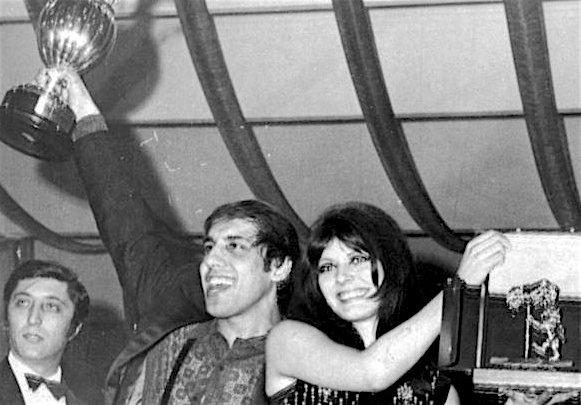

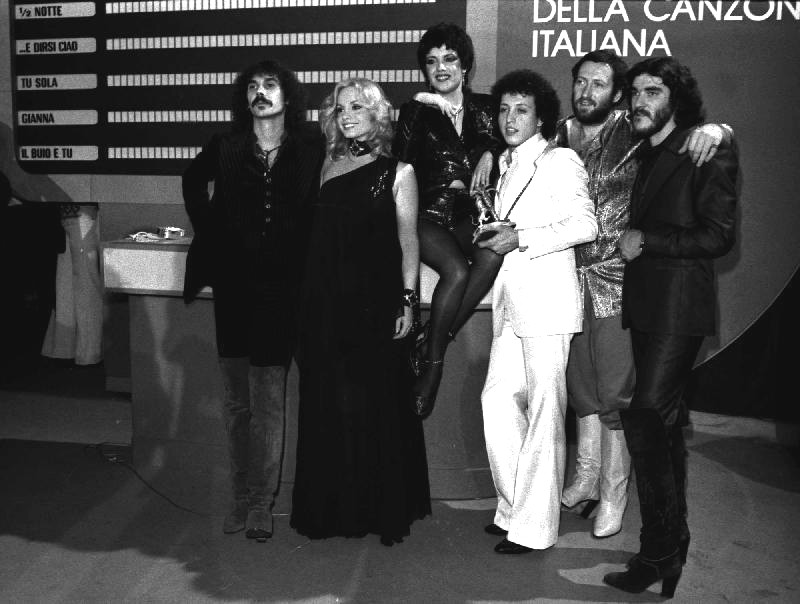

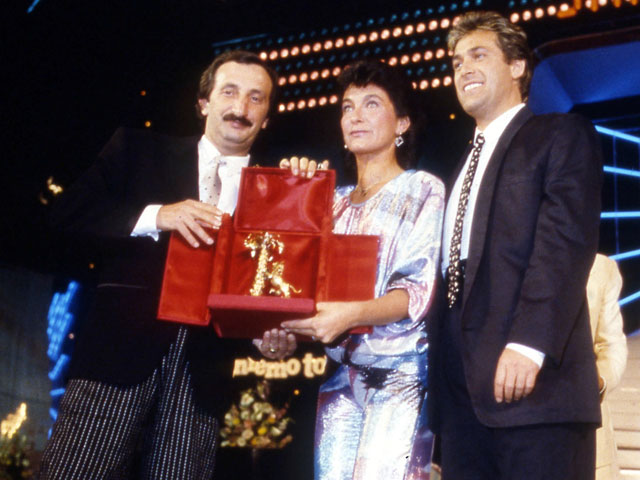






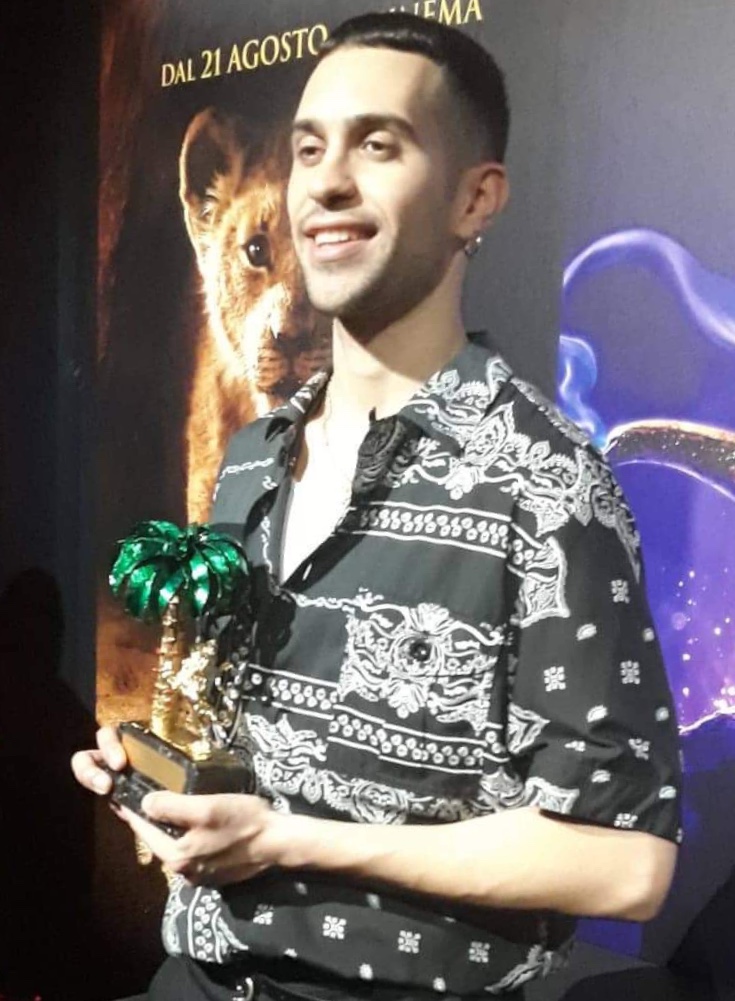




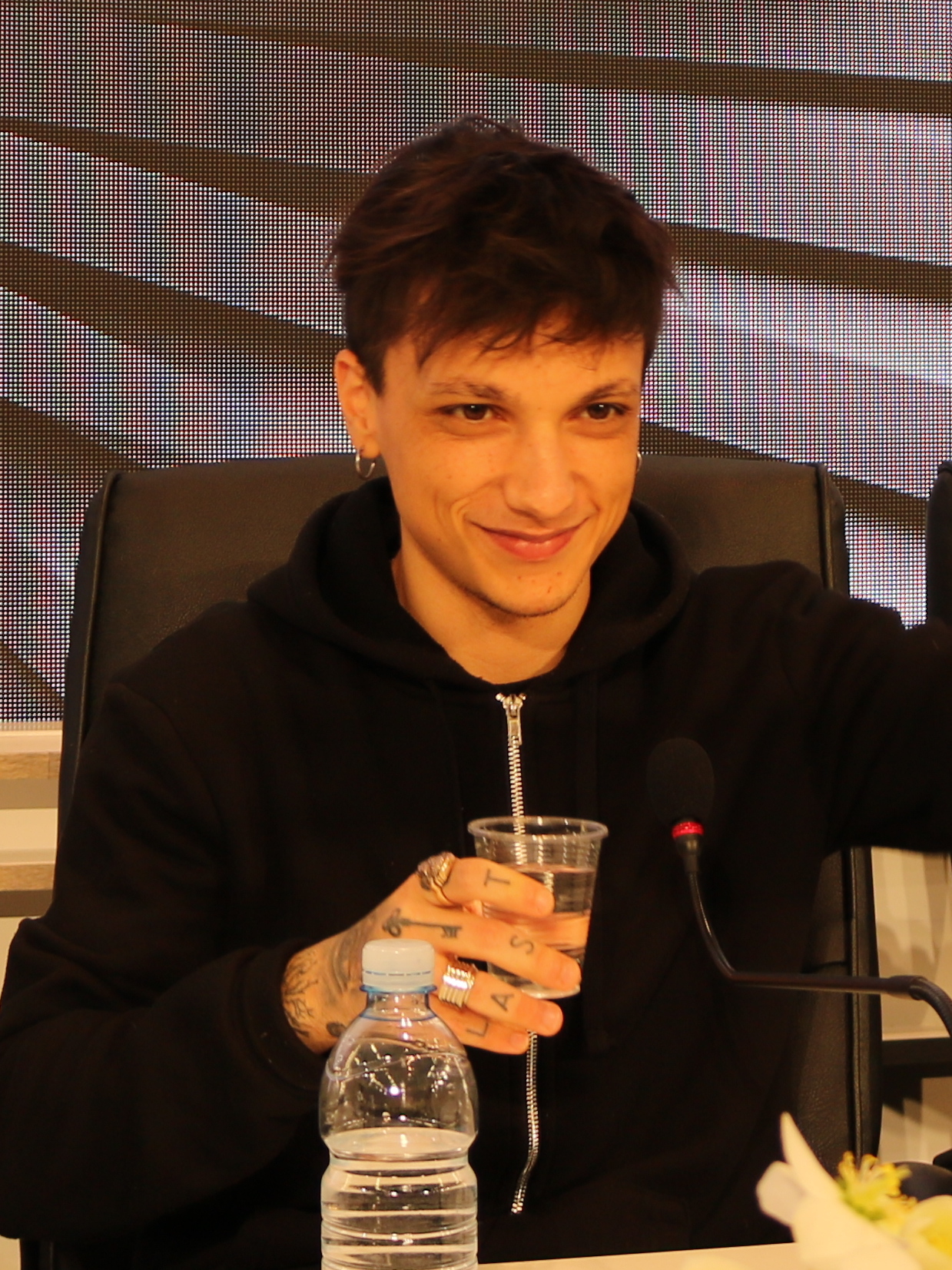



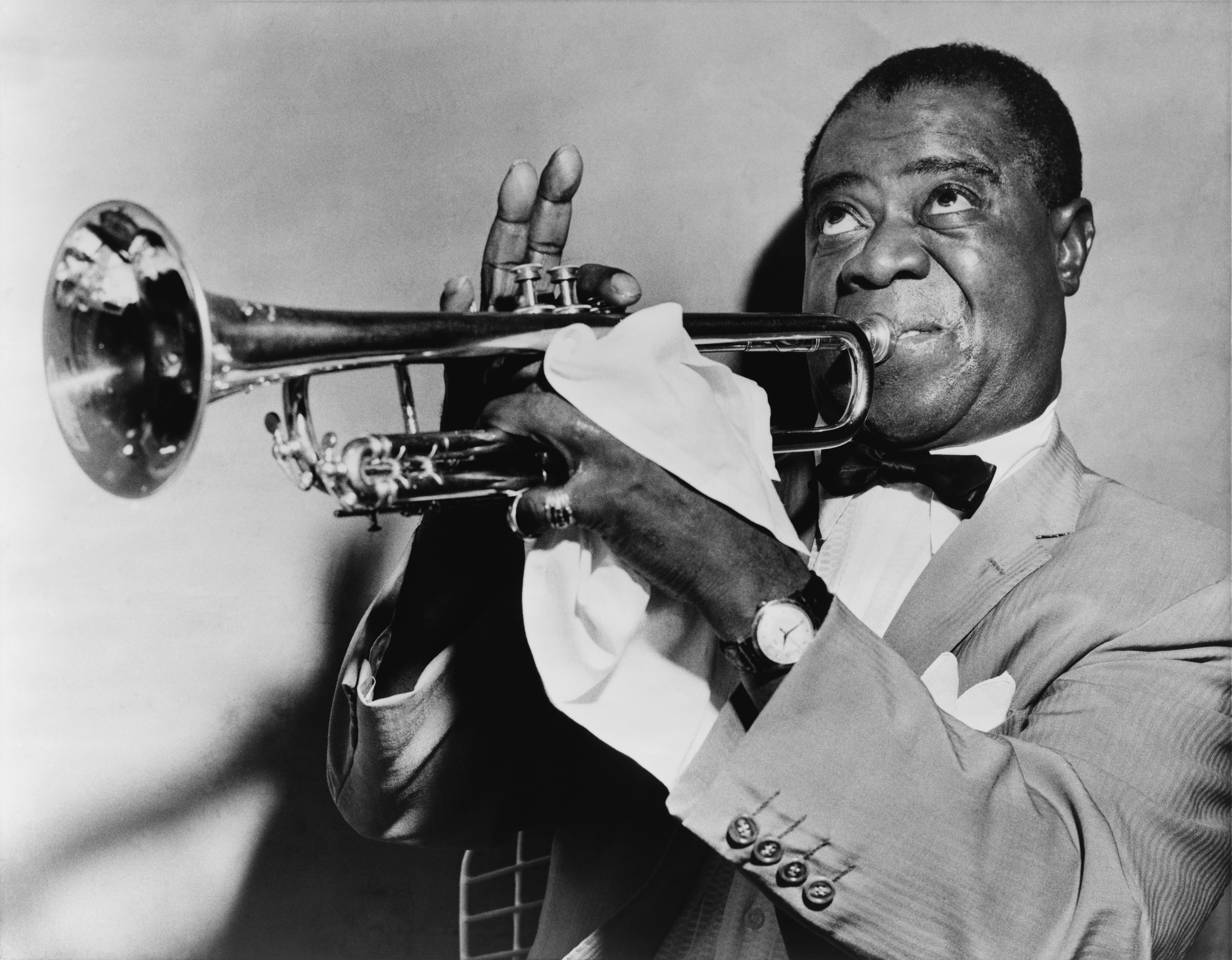 Notable guest artists of that time were, among others:
* 1964:
Notable guest artists of that time were, among others:
* 1964:
 Various songs presented during the Sanremo Festival over the years have become international hits, including " Nel blu dipinto di blu" and "
Various songs presented during the Sanremo Festival over the years have become international hits, including " Nel blu dipinto di blu" and "



 The first edition of the Sanremo Music Festival was hosted by
The first edition of the Sanremo Music Festival was hosted by
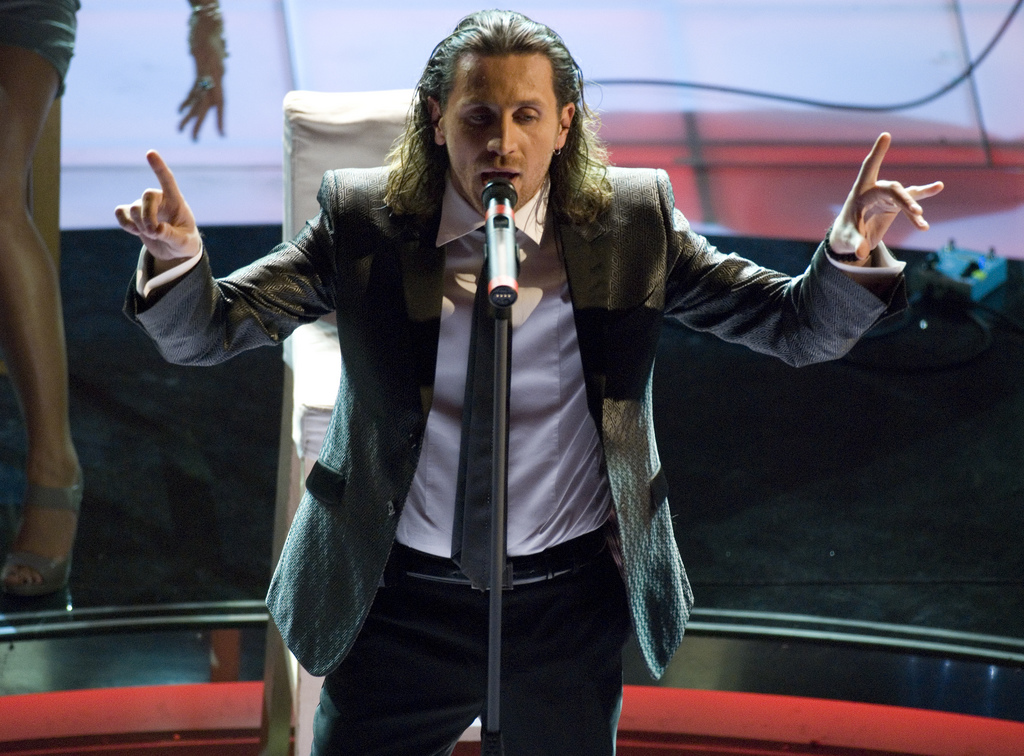 In 2009, the song "Luca era gay" (''Luca Was Gay''), written and sung by Povia, was considered by some gay rights organizations as an anti-gay song. The controversy was also based on the name of the song's character: according to Aurelio Mancuso, president of the
In 2009, the song "Luca era gay" (''Luca Was Gay''), written and sung by Povia, was considered by some gay rights organizations as an anti-gay song. The controversy was also based on the name of the song's character: according to Aurelio Mancuso, president of the
Festivaldisanremo.com – Independent website on Sanremo Music Festival since 1998
*
City of Sanremo
{{coord missing, Italy Song contests Music festivals in Italy Sanremo Italian music television series Music of Liguria Tourist attractions in Liguria 1951 establishments in Italy Annual events in Italy Music festivals established in 1951 February events Winter events in Italy Eurovision Song Contest selection events
Eurovision Song Contest
The Eurovision Song Contest (), sometimes abbreviated to ESC and often known simply as Eurovision, is an international songwriting competition organised annually by the European Broadcasting Union (EBU), featuring participants representing pr ...
.
Unlike other awards in Italy, the Sanremo Music Festival is a competition for new songs, not an award to previous successes (like the for television, the for stage performances, and the Premio David di Donatello for motion pictures).
The first edition of the Sanremo Music Festival, held between 29 and 31 January 1951, was broadcast by RAI's radio station Rete Rossa, and its only three participants were Nilla Pizzi, Achille Togliani, and Duo Fasano. Starting from 1955, all editions of the festival have been broadcast live by the Italian TV station Rai 1
Rai 1 () is an Italian free-to-air television channel owned and operated by state-owned public broadcaster RAI – Radiotelevisione italiana. It is the company's flagship television channel, and is known for broadcasting mainstream and gene ...
.
From 1951 to 1976, the Festival took place in the Sanremo Casino
Sanremo Casino, officially named is a gambling and entertainment complex located in Sanremo, on the Italian Riviera.
History
The Casino's building was designed by French architect Eugène Ferret, opening 12 January 1905.
Seven different proje ...
, but starting from 1977, all the following editions were held in the Teatro Ariston, except in 1990, which was held at the Nuovo Mercato dei Fiori.
The songs selected in the competition are in Italian (or in an Italian dialect), and the three most voted songs are awarded. Other special awards are also given, including the Critics' Award, created ad hoc by the press in 1982 to reward the quality of Mia Martini's song, and named after the singer in 1996, after her death.
The Sanremo Music Festival has often been used as a method for choosing the Italian entry for the Eurovision Song Contest. It has launched the careers of some of Italy's most successful musical acts, including Gigliola Cinquetti,
Laura Pausini, Eros Ramazzotti, Andrea Bocelli
Andrea Bocelli (; born 22 September 1958) is an Italian tenor and multi-instrumentalist. He was born visually impaired, with congenital glaucoma, and at the age of 12, Bocelli became completely blind, following a brain hemorrhage resulting fro ...
, Giorgia Giorgia is the Italian cognate of the female name Georgia. Notable people with the name include:
Arts and entertainment
*Giorgia (singer), Italian singer, born ''Giorgia Todrani''
* Giorgia Fumanti, Italian-Canadian soprano and singer of operatic p ...
, Il Volo, and Måneskin.
Between 1953 and 1971 (except in 1956), in 1990, and 1991, each song was sung twice by two different artists, each one using an individual orchestral arrangement, to illustrate the meaning of the festival as a composers' competition, not a singers' competition. During this era of the festival, it was custom that one version of the song was performed by a native Italian artist while the other version was performed by an international guest artist. This became a way for many international artists to debut their songs on the Italian market, including Louis Armstrong, Ray Charles
Ray Charles Robinson Sr. (September 23, 1930 – June 10, 2004) was an American singer, songwriter, and pianist. He is regarded as one of the most iconic and influential singers in history, and was often referred to by contemporaries as "The Ge ...
, Stevie Wonder
Stevland Hardaway Morris ( Judkins; May 13, 1950), known professionally as Stevie Wonder, is an American singer-songwriter, who is credited as a pioneer and influence by musicians across a range of genres that include rhythm and blues, pop, s ...
, Cher, Gloria Gaynor, Dionne Warwick, Jose Feliciano, Roberto Carlos, Paul Anka, Miriam Makeba, Bonnie Tyler, Shirley Bassey, Mungo Jerry, Kiss
A kiss is the touch or pressing of one's lips against another person or an object. Cultural connotations of kissing vary widely. Depending on the culture and context, a kiss can express sentiments of love, passion, romance, sexual attraction, ...
, Laura Branigan, and many others.
History
Origin and development
 In the aftermath of World War II, one of the proposals to revitalize the economy and the reputation of Sanremo was to create an annual music festival to be held in the city.
In 1948 and 1949, the first two editions of the Italian Song Festival () were held in Viareggio, from an idea developed in 1947 by Aldo Valleroni. The competition was discontinued in 1950 due to financial problems, but it became the basis for the future Sanremo Music Festival.
During the summer of 1950, the administrator of the Sanremo Casino, Piero Bussetti, and the conductor of the RAI orchestra, Giulio Razzi, rediscussed the idea, deciding to launch a competition among previously unreleased songs. Officially titled (literally "Festival of the Italian song"), the first edition of the show was held at the Sanremo Casino on 29, 30, and 31 January 1951. The final round of the competition was broadcast by Rete Rossa, the second most important RAI radio station.
Twenty songs took part in the competition, performed by three artists only– Nilla Pizzi, Duo Fasano, and Achille Togliani.
Starting from the third edition of the festival, held in 1953, each song was performed by two different artists with different orchestras and arrangements. Two years later, in 1955, the festival made its first appearance on television, since part of the final night was also broadcast by RAI's channel Programma Nazionale. The last night of the show was also broadcast in Belgium, France, Germany, the Netherlands, and Switzerland.
In 1964, Gianni Ravera, who organized the 14th Sanremo Music Festival, slightly changed the rules of the contest, requiring each song to be performed once by an Italian artist and once by an international singer, who was allowed to perform the song in any language. The same rule was applied in the following year's contest. Between 1967 and 1971, entries were not forced to be interpreted by foreign artists, but double performances were kept. Starting from 1972, each entry was sung by one artist only.
In the aftermath of World War II, one of the proposals to revitalize the economy and the reputation of Sanremo was to create an annual music festival to be held in the city.
In 1948 and 1949, the first two editions of the Italian Song Festival () were held in Viareggio, from an idea developed in 1947 by Aldo Valleroni. The competition was discontinued in 1950 due to financial problems, but it became the basis for the future Sanremo Music Festival.
During the summer of 1950, the administrator of the Sanremo Casino, Piero Bussetti, and the conductor of the RAI orchestra, Giulio Razzi, rediscussed the idea, deciding to launch a competition among previously unreleased songs. Officially titled (literally "Festival of the Italian song"), the first edition of the show was held at the Sanremo Casino on 29, 30, and 31 January 1951. The final round of the competition was broadcast by Rete Rossa, the second most important RAI radio station.
Twenty songs took part in the competition, performed by three artists only– Nilla Pizzi, Duo Fasano, and Achille Togliani.
Starting from the third edition of the festival, held in 1953, each song was performed by two different artists with different orchestras and arrangements. Two years later, in 1955, the festival made its first appearance on television, since part of the final night was also broadcast by RAI's channel Programma Nazionale. The last night of the show was also broadcast in Belgium, France, Germany, the Netherlands, and Switzerland.
In 1964, Gianni Ravera, who organized the 14th Sanremo Music Festival, slightly changed the rules of the contest, requiring each song to be performed once by an Italian artist and once by an international singer, who was allowed to perform the song in any language. The same rule was applied in the following year's contest. Between 1967 and 1971, entries were not forced to be interpreted by foreign artists, but double performances were kept. Starting from 1972, each entry was sung by one artist only.
 The competing artists were split for the first time into "Big artists" and "Young artists" during the Sanremo Music Festival 1974. The competition had one winner only, but the entries in the "Young artists" category had to go through an elimination round, while "Big artists" were directly admitted to the final round.
In 1977, the Sanremo Casino, which hosted all the previous editions of the contest, was closed for renovations, therefore the show moved to the Teatro Ariston. The theater later became the usual location for the annual contest, hosting it every year except in 1990, when the show was held at the Nuovo Mercato dei Fiori, also known as Palafiori.
In 1980, pre-recorded backing tracks replaced the orchestra, while playback performances were allowed in 1983 during the final round. In 1984 and 1985, all the artists were forced to perform in playback, while live performances with the orchestra were reintroduced in 1990.
During the same years, several other changes were introduced in the contest. In 1982, accredited music journalists decided to create an award to recognise the best song competing in the festival. Starting from 1983, the prize was officially awarded during the event. The critics' prize was later named after Mia Martini, who was the first artist receiving it in 1982 for her entry "E non finisce mica il cielo".
Moreover, starting from 1984, the separation between newcomers and established artists was marked, introducing two different competitions with separate winners.
In 1989, a third category, the Upcoming Artists Section, was introduced, but it was removed the following year.
Only in 1998 were the top three artists in the newcomer section allowed to compete in the main competition. This led to the victory of the debuting
The competing artists were split for the first time into "Big artists" and "Young artists" during the Sanremo Music Festival 1974. The competition had one winner only, but the entries in the "Young artists" category had to go through an elimination round, while "Big artists" were directly admitted to the final round.
In 1977, the Sanremo Casino, which hosted all the previous editions of the contest, was closed for renovations, therefore the show moved to the Teatro Ariston. The theater later became the usual location for the annual contest, hosting it every year except in 1990, when the show was held at the Nuovo Mercato dei Fiori, also known as Palafiori.
In 1980, pre-recorded backing tracks replaced the orchestra, while playback performances were allowed in 1983 during the final round. In 1984 and 1985, all the artists were forced to perform in playback, while live performances with the orchestra were reintroduced in 1990.
During the same years, several other changes were introduced in the contest. In 1982, accredited music journalists decided to create an award to recognise the best song competing in the festival. Starting from 1983, the prize was officially awarded during the event. The critics' prize was later named after Mia Martini, who was the first artist receiving it in 1982 for her entry "E non finisce mica il cielo".
Moreover, starting from 1984, the separation between newcomers and established artists was marked, introducing two different competitions with separate winners.
In 1989, a third category, the Upcoming Artists Section, was introduced, but it was removed the following year.
Only in 1998 were the top three artists in the newcomer section allowed to compete in the main competition. This led to the victory of the debuting Annalisa Minetti
Annalisa Minetti (born 27 December 1976 in Rho) is an Italian singer, politician and Paralympic athlete.
Minetti was a beauty pageant contestant in the 1997 edition of Miss Italia; she gained public attention because she was the first blind woman ...
, which generated some controversy and led to the reintroduction of completely separate competitions starting from 1999.
The distinction among different categories was abolished again in 2004. The following year, the contest included five different categories—Newcomers, Men, Women, Groups, and Classics. The winner of each category competed for the final victory of the contest. The category Classic was abolished in 2006, while starting from 2007, the festival came back to the rules used in the 1990s, with two completely separate competitions for established artists and newcomers.
In 2009, a new competition, held entirely online, was introduced by the artistic director of the 59th edition of the contest, Paolo Bonolis
Paolo Bonolis (; born 14 June 1961) is an Italian television host. He made his debut in 1981 on ''Tre, due, uno, contatto...'', a program for children that aired on Italian national broadcaster Rai.
Biography
In 1982, he moved to Italia 1 where ...
. Titled ''Sanremofestival.59'', the contest was not held in the following years.
Winners
''Big Artists'' section
1950s


1960s


1970s



1980s



1990s



2000s

2010s


2020s
Newcomers section

1980s
1990s

2000s

2010s
2020s
Other sections
"Mia Martini" Critics Award
The "Mia Martini" Critics Award, originally named the Critics Award of the Italian Song Festival and, more informally, simply the Critics Award, is a recognition given to the best song, selected by music experts (journalists and music critics) at the Sanremo Music Festival. The prize was created in 1982 specifically to award Mia Martini's interpretation of her song "E non finisce mica il cielo". Since 1996, the award has been named after Mia Martini, following her sudden death. A petition was launched by the founder of Mia Martini's official club, Chez Mimi, alongside Alba Calia and Dori Ghezzi and supported by numerous Italian artists, including Mina, Luciano Pavarotti,Fabrizio De André
Fabrizio Cristiano De André (; 18 February 1940 – 11 January 1999) was an Italian singer-songwriter, the most prominent ''cantautore'' of his time. His 40-year career reflects his interests in concept albums, literature, poetry, political pr ...
, Lucio Dalla, and Franco Battiato. Pippo Baudo, then-artistic director of the Sanremo Festival and the Critics Award jury, decided to name the prize after the Calabrian artist, specifically because she was the artist who, until then, had won the award the most frequently (three times), as well as having been its first winner.
''Big Artists'' section and Newcomers section


Notable foreign duet singers

 Notable guest artists of that time were, among others:
* 1964:
Notable guest artists of that time were, among others:
* 1964: Peggy March
Peggy March (born Margaret Annemarie Battavio, March 8, 1948) is an American pop singer. In the United States, she is primarily known for her 1963 million-selling song "I Will Follow Him". Although she is sometimes remembered as a one-hit wonder ...
, team partner of Claudio Villa with "Passo su passo", semi-finals only.
* 1965: Connie Francis
Concetta Rosa Maria Franconero (born December 12, 1937),
known professionally as Connie Francis, is an American pop singer, actress, and top-charting female vocalist of the late 1950s and early 1960s. Called the “First Lady of Rock & Roll” ...
, team partner of Gigliola Cinquetti with "Ho bisogno di vederti".
* 1965: Petula Clark, team partner of Betty Curtis with "Invece no".
* 1965: Dusty Springfield, team partner of Gianni Mascolo with "Di fronte all'amore", semi-finals only.
* 1965: Audrey Arno, team partner of Remo Germani with "Prima o poi".
* 1966: Gene Pitney, team partner of Caterina Caselli with " Nessuno mi può giudicare".
* 1966: Pat Boone
Patrick Charles Eugene Boone (born June 1, 1934) is an American singer and actor. He was a successful pop singer in the United States during the 1950s and early 1960s. He sold more than 45 million records, had 38 Top 40 hits, and appeared in mo ...
, team partner of Peppino Gagliardi with "Se tu non fossi qui".
* 1967: Cher and Sonny Bono, team partner of Caterina Caselli with "Il cammino di ogni speranza".
* 1967: Cher, team partner of Nico Fidenco with "Ma piano (per non svegliarmi)"
* 1967: Dalida, team partner of Luigi Tenco with "Ciao, amore ciao", semi-finals only.
* 1968: Roberto Carlos, team partner of Sergio Endrigo with "Canzone per te" (winner).
* 1968: Bobbie Gentry, team partner of Al Bano with "La siepe".
* 1968: Dionne Warwick, team partner of Tony del Monaco with "La voce del silenzio".
* 1968: Louis Armstrong, team partner of Lara Saint Paul with "Mi va di cantare".
* 1968: Wilson Pickett, team partner of Fausto Leali with "Deborah".
* 1969: Mary Hopkin, team partner of Sergio Endrigo with "Lontano dagli occhi" (second place).
* 1969: Stevie Wonder
Stevland Hardaway Morris ( Judkins; May 13, 1950), known professionally as Stevie Wonder, is an American singer-songwriter, who is credited as a pioneer and influence by musicians across a range of genres that include rhythm and blues, pop, s ...
, team partner of Gabriella Ferri with "Se tu ragazzo mio", semi-finals only.
* 1971: José Feliciano, team partner of Ricchi e Poveri with "Che sarà" (second place).
* 1990: Dee Dee Bridgewater, team partner of Pooh with "Uomini soli" (winner).
* 1990: Ray Charles
Ray Charles Robinson Sr. (September 23, 1930 – June 10, 2004) was an American singer, songwriter, and pianist. He is regarded as one of the most iconic and influential singers in history, and was often referred to by contemporaries as "The Ge ...
, team partner of Toto Cutugno
Salvatore "Toto" Cutugno (; born 7 July 1943) is an Italian pop singer-songwriter and musician. He is best known for his worldwide hit song, " L'Italiano", released on his 1983 album of the same title. Cutugno also won the Eurovision Song Con ...
with "Gli amori" (second place).
* 1990: Miriam Makeba, team partner of Caterina Caselli with "Bisognerebbe non pensare che a te".
* 1991: Grace Jones, team partner of Renato Zero with "Spalle al muro".
* 1991: Laura Branigan, team partner of Fiordaliso
Marina Fiordaliso, best known as Fiordaliso, is an Italian pop-rock singer. During her career she has sold over 6 million records.
Life and career
Born in Piacenza, the daughter of a drummer, Fiordaliso approached music at young age studying vo ...
with "Il mare più grande che c'è (I love you man)".
* 1991: Ofra Haza, team partner of Raf with "Oggi un Dio non ho".
* 1991: Gloria Gaynor, team partner of Gianni Bella
Giovanni Bella, best known as Gianni Bella (born 14 March 1946), is an Italian composer and singer-songwriter.
Background
Born in Catania, Bella started his career as composer for his sister, singer Marcella Bella authoring several hits with ly ...
with "La fila degli oleandri".
* 1991: Bonnie Tyler, team partner of Amedeo Minghi with "Nené".
International successes
 Various songs presented during the Sanremo Festival over the years have become international hits, including " Nel blu dipinto di blu" and "
Various songs presented during the Sanremo Festival over the years have become international hits, including " Nel blu dipinto di blu" and "Piove_(Ciao,_ciao_bambina)
"Piove (Ciao, ciao bambina)" ("It's raining ye, bye baby) is an Italian song written by Domenico Modugno and Eduardo Verde. It won first prize at the 1959 Sanremo Music Festival, where it was performed twice, once by Modugno and once by John ...
" by Domenico Modugno. "Nel blu dipinto di blu" spent five non-consecutive weeks atop the Billboard Hot 100 in August and September 1958 and subsequently became Billboard's number-one single for the year. In 1959, at the firsts Annual Grammy Awards, Modugno's recording became the first-ever Grammy winner for both Record of the Year and Song of the Year. The song "Io che non vivo (senza te)", sung at the fifteenth edition of the Sanremo Festival by Pino Donaggio, was recorded in English by Dusty Springfield under the title " You Don't Have to Say You Love Me". It became Springfield's most successful single, reaching number one on the UK Singles Chart and number four on the Billboard Hot 100. Elvis Presley
Elvis Aaron Presley (January 8, 1935 – August 16, 1977), or simply Elvis, was an American singer and actor. Dubbed the " King of Rock and Roll", he is regarded as one of the most significant cultural figures of the 20th century. His ener ...
recorded a cover version in 1970, which was a hit in both the US and the UK. Other covers have charted in the UK, Ireland, Italy, and Finland.
The song "Non amarmi" by Aleandro Baldi and Francesca Alotta won the Newcomers section at the Sanremo Festival in 1992. It became an international hit, being covered as "No Me Ames
"No Me Ames" (English: "Don't Love Me") is a Latin pop duet recorded by American singers Jennifer Lopez and Marc Anthony for Lopez's debut studio album, '' On the 6'' (1999). It is a Spanish cover version of the Italian song "Non Amarmi", written ...
" by American singers Jennifer Lopez and Marc Anthony. The song peaked at number one in the Billboard Hot Latin Songs chart. It received a Latin Grammy nomination for Best Pop Performance by a Duo/Group with Vocals. At the Billboard Latin Music Awards of 2000, the song received an award for Hot Latin Track of the Year by a Vocal Duo and two nominations for Tropical/Salsa Track of the Year and Hot Latin Track of the Year.
The song "Che sarà
"Che sarà" (; "What twill be") is an Italian song, written by Jimmy Fontana (music) and Franco Migliacci (lyrics) for the 1971 Sanremo Music Festival. Up until that year, each song was interpreted by two artists or performers to showcase the son ...
" was sung by Ricchi e Poveri and José Feliciano at the Sanremo Festival in 1971. Feliciano's recorded version was successful in Europe, the Middle East, Japan, and Latin America. Feliciano's Spanish version peaked at number one in Spain and Latin America.
The song "Con te partirò
"Con te partirò" (; "With You I Shall Depart") is an Italian song written by Francesco Sartori (music) and Lucio Quarantotto (lyrics). It was first performed by Andrea Bocelli at the 1995 Sanremo Music Festival and recorded on his album of the ...
" was first performed by Andrea Bocelli
Andrea Bocelli (; born 22 September 1958) is an Italian tenor and multi-instrumentalist. He was born visually impaired, with congenital glaucoma, and at the age of 12, Bocelli became completely blind, following a brain hemorrhage resulting fro ...
at the 1995 Sanremo Music Festival, topping the charts in different European countries. A version, sung partly in English, released in 1996 as "Time to Say Goodbye", achieved greater success, selling more than twelve million copies worldwide and making it one of the best-selling singles of all time. " Non ho l'età" by Gigliola Cinquetti (1964), " Sarà perché ti amo" by Ricchi & Poveri (1981), " Maledetta Primavera" by Loretta Goggi (1981), "Felicità
"Felicità" (; Italian for "Happiness") is a song by Italian-American duo Al Bano and Romina Power, released in 1982. It was an international commercial success and remains arguably their best-known song.
Song information
The duo participated wi ...
" by Al Bano and Romina Power (1982), " L'Italiano" by Toto Cutugno (1983), "Adesso tu
"Adesso tu" is a 1986 Italian song composed by Eros Ramazzotti, Piero Cassano and Adelio Cogliati and performed by Eros Ramazzotti. The song won the 36th edition of the Sanremo Music Festival.
The semi-autobiographical lyrics were eventual ...
" by Eros Ramazzotti (1986), " La solitudine" by Laura Pausini (1993), and "Il Mare Calmo della Sera
''Il mare calmo della sera'' is the debut album by Italian tenor singer Andrea Bocelli, following his win of the Sanremo Festival in 1994, singing his first single and the leading single of the album of the same name. It was certified Gold in the ...
" by Andrea Bocelli (1994) also became international hits. In 1994, the song "La mia storia tra le dita", which Gianluca Grignani sang at Sanremo, became a hit in South America, selling two million copies. Nek sang "Laura non c'è
"Laura non c'è" ("Laura Is Not Here") is a pop-rock song written by Italian pop singer Nek. It was released as the second single from his fourth album ''Lei, gli amici e tutto il resto'' (1997) and achieved a huge success in Italy, Europe and Lati ...
" at the Sanremo Music Festival in 1997, with the song becoming a hit in Europe and Latin America; the Spanish version charted in the US and peaked at no. 21 in the Billboard Hot Latin Songs Chart.
The song "Soldi
"Soldi" (; ) is a song recorded by Italian singer Mahmood. It was released on 6 February 2019, as the fifth single from his debut studio album, '' Gioventù bruciata'' (2019). Mahmood co-wrote the song with Dario "Dardust" Faini and Charlie C ...
" by Mahmood won the 69th Sanremo Musical Festival in 2019 and topped the charts in Greece, Israel, and Lithuania and reached the top ten in five more countries. The song " Zitti e buoni" won the Sanremo Music Festival and Eurovision Song Contest in 2021, topping the singles chart in several European countries. It peaked at number seventeen on the UK Singles Chart and reached top ten on the Billboard Global Exclusive US chart.
Hosts



 The first edition of the Sanremo Music Festival was hosted by
The first edition of the Sanremo Music Festival was hosted by Nunzio Filogamo
Nunzio Filogamo (20 September 1902 – 24 January 2002) was an Italian television and radio presenter, actor and singer.
Life and career
Born in Palermo, Filogamo moved to Turin at a young age, then he studied law at the Sorbonne University ...
. He also hosted the next three editions of the musical event. In 2003, Pippo Baudo hosted for the eleventh time, matching the record previously held by Mike Bongiorno. He later overtook this record, hosting the Sanremo Music Festival in 2007 and in 2008. Only seven women have hosted the festival as main presenters. The first women ever to host the event alone were Lilly Lembo and Giuliana Calandra in 1961, followed by Maria Giovanna Elmi in 1978, Loretta Goggi
Loretta Goggi ( born 29 September 1950) is an Italian singer, actress, comedian and TV host.
Goggi is also an acclaimed singer and her records have sometimes entered the Italian pop charts. She was the first runner-up at the 1981 '' Festival de ...
in 1986, Raffaella Carrà
Raffaella Maria Roberta Pelloni (18 June 1943 – 5 July 2021), better known as Raffaella Carrà (), was an Italian singer, dancer, television presenter, actress and model.
She was well known in Europe and Latin America as a result of her many ...
in 2001, Simona Ventura
Simona Ventura (born 1 April 1965) is an Italian television presenter.
Television career
Ventura was born in Bentivoglio. She started in TV on "Domani Sposi" with Giancarlo Magalli on Rai Uno.
Her love for sport took her into sports reporting ...
in 2004, and Antonella Clerici
Antonella Clerici (; born in Legnano on 6 December 1963) is an Italian television host and journalist.
Biography
She debuted in 1985 in Telereporter as a TV announcer. In 1987, she switched to Rai 2 where she presented ''Semaforo giallo'', ''Oggi ...
in 2010.
Full list of festival hosts:
Controversy
 In 2009, the song "Luca era gay" (''Luca Was Gay''), written and sung by Povia, was considered by some gay rights organizations as an anti-gay song. The controversy was also based on the name of the song's character: according to Aurelio Mancuso, president of the
In 2009, the song "Luca era gay" (''Luca Was Gay''), written and sung by Povia, was considered by some gay rights organizations as an anti-gay song. The controversy was also based on the name of the song's character: according to Aurelio Mancuso, president of the Arcigay
Arcigay is Italy's first and largest worldwide gay organisation. The association was first founded as a local association in Palermo in 1980, then nationally established in Bologna in 1985. The organisation became known throughout Italy for its c ...
, the name refers to Luca Tolvi, who claimed that Joseph Nicolosi cured his homosexuality.
Povia denied this thesis and claimed that the song is about a man he met on a train, whose real name is Massimiliano.
The song won second place at the Festival.
Trivia
* In '' The Talented Mr. Ripley'' byPatricia Highsmith
Patricia Highsmith (January 19, 1921 – February 4, 1995) was an American novelist and short story writer widely known for her psychological thrillers, including her series of five novels featuring the character Tom Ripley.
She wrote 22 nove ...
and its film adaptations, Dickie Greenleaf invites Tom Ripley to travel to the Sanremo Music Festival to enjoy some jazz, as a parting gesture before sending Ripley on his way. The ensuing events in Sanremo have major implications for all of the characters.
* In 1960, future Italian pop legend Mina Mazzini made her Sanremo debut. The contest helped launch her career.
* The song "Perdere l'amore" was proposed in 1987 by Gianni Nazzaro and rejected in the preliminary song screening. A year later, it was proposed by Massimo Ranieri and won the contest.
* In 1990, Patty Pravo turned down the opportunity to participate in the Sanremo Music Festival with " Donna con te", which was sung at the event by Anna Oxa
Anna Hoxha (; born 28 April 1961), known professionally as Anna Oxa (), is an Italian singer, actress, and television presenter. Oxa has received mainstream popularity and recognition within Italy due to her numerous participations in the Sanremo ...
.
* In 2007, the song "Bruci la città" was rejected in the screening, mainly as a decision of that year's artistic director Pippo Baudo, who later explained that the decision was due to the poor quality of the received demo. However, the song was later released by Irene Grandi
Irene Grandi (born 6 December 1969) is an Italian singer and songwriter.
During her career she has sung in Spanish and has performed duets in German, French, Indian and in African languages, selling around 5 million records and earning 9 top-ten ...
and became one of her biggest hits.
See also
* List of historic rock festivals * Sopot International Song Festival * Italy in the Eurovision Song Contest *Eurovision Song Contest
The Eurovision Song Contest (), sometimes abbreviated to ESC and often known simply as Eurovision, is an international songwriting competition organised annually by the European Broadcasting Union (EBU), featuring participants representing pr ...
References
External links
*Festivaldisanremo.com – Independent website on Sanremo Music Festival since 1998
*
City of Sanremo
{{coord missing, Italy Song contests Music festivals in Italy Sanremo Italian music television series Music of Liguria Tourist attractions in Liguria 1951 establishments in Italy Annual events in Italy Music festivals established in 1951 February events Winter events in Italy Eurovision Song Contest selection events